The average cost of Prostate Cancer Treatment in India starts from INR 540475 (USD 6500)
Cancer of the prostate gland is termed as Prostrate Cancer. The prostate gland is a small walnut-shaped gland, which produces some of the fluids in the semen and helps men in controlling their urine. It is one of the most common cancers in men. This cancer grows slowly and is confined to the gland, where it doesn’t cause any serious harm. There are certain types of prostate cancer, which grow slowly and may need minimum treatment or no treatment. The aggressive form of cancer spread quickly.
Medical tourism is a budding industry in India, with tourists coming from across the globe to get various types of medical facilities. The chief charm in India is the quality of healthcare, available at affordable prices, with no waitlist. Most of the Indian doctors are famed throughout the world for their commitment and skills. The majority of the hospitals in India are offering international facilities with cutting-edge diagnostic methods and advanced technology for all types of oncology procedures. The onco-surgeons have received training from some of the renowned institutes globally.
Indraprastha Apollo Hospital, New Delhi
BLK Super Specialty Hospital, New Delhi
SevenHills Hospital, Mumbai
Fortis Group of Hospitals, Pan India
Artemis Hospital, Delhi NCR
Global Hospital, Chennai, Mumbai, and Bangalore
SRMC, Chennai
Wockhardt Hospital, Mumbai
Ruby Hall Clinic, Pune
American Oncology Institute, Hyderabad
The best hospitals for prostate cancer treatment in India are equipped with the latest technology used for the management of cases. A majority of these centers are accredited by the JCI and is managed by staff from a strong educational and healthcare background. Moreover, these hospitals possess all the facilities under the same roof. Things are managed and organized to create a seamless experience for the patient.
The average cost of prostate cancer treatment in India in USD$ 3500, which is comparatively lower than the other medical tourism destinations. The cost of prostate cancer treatment also depends on a number of factors ranging from the type of surgery to the quality of the hospital where the patient is undergoing treatment.
Following are some of the Types of Pancreatic Cancer Treatment available in India:
| Type of Treatment | India | UK | Turkey | UAE | Thailand |
| Chemotherapy | $ 300 to 1500 | $ 2500 - 4500 | $ 800 - 2000 | $ 1200 - 2500 | $ 1000 - 2000 |
| Robotic Surgery | $ 8000 | $ 17500 | $ 12000 | $ 14000 | $ 15000 |
| Cyber Knife Surgery | $ 8000 | $ 25000 | $ 11000 | $ 17000 | $ 19000 |
| Laparoscopic Surgery | $ 7000 | $ 21000 | $ 10500 | $ 9500 | $ 20500 |
| Brachytherapy | $ 1200 per cycle | $ 5000 | $ 2000 per cycle | $ 2000 per cycle | $ 2500 per cycle |
| Robotic Prostatectomy | $ 6500 | $ 17500 | $ 12000 | $ 15000 | $ 9000 |
| Open Prostatectomy | $ 4500 | $ 15000 | $ 11000 | $ 13500 | $ 8000 |
| City Name | Cost in USD |
| Bangalore | $ 5500 |
| Delhi | $ 6500 |
| Mumbai | $ 6000 |
| Chennai | $ 5850 |
| Gurgaon | $ 5900 |
| Hyderabad | $ 5300 |
| Kolkata | $ 5700 |
| Pune | $ 6100 |
| Noida | $ 5850 |
| Country | Cost | Local_currency |
|---|---|---|
| Czechia | USD 14500 | Czechia 329005 |
| Greece | USD 25000 | Greece 23000 |
| India | USD 6500 | India 540475 |
| Israel | USD 10000 | Israel 38000 |
| Lebanon | USD 25000 | Lebanon 375138750 |
| Malaysia | USD 9000 | Malaysia 42390 |
| Poland | USD 10000 | Poland 40400 |
| South Korea | USD 27000 | South Korea 36252630 |
| Spain | USD 14800 | Spain 13616 |
| Switzerland | USD 25000 | Switzerland 21500 |
| Thailand | USD 17000 | Thailand 606050 |
| Tunisia | USD 7500 | Tunisia 23325 |
| Turkey | USD 9000 | Turkey 271260 |
| United Arab Emirates | USD 14000 | United Arab Emirates 51380 |
| United Kingdom | USD 30000 | United Kingdom 23700 |
Treatment cost
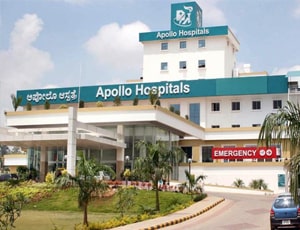
Types of Prostate Cancer Treatment in Apollo Hospitals Bannerghatta and its associated cost
| Treatment Option | Approximate Cost Range (USD) | Approximate Cost Range (INR) |
|---|---|---|
| Prostate Cancer Treatment (Overall) | 5591 - 11173 | 452756 - 902903 |
| Surgery | 3315 - 6867 | 281788 - 550782 |
| Radiation Therapy | 1712 - 4423 | 137157 - 370119 |
| Brachytherapy | 3389 - 6733 | 274700 - 551829 |
| Hormone Therapy | 574 - 1654 | 47061 - 137931 |
| Chemotherapy | 893 - 2859 | 73264 - 231544 |
| Immunotherapy | 3322 - 6163 | 272433 - 500658 |
| Targeted Therapy | 4405 - 7881 | 365528 - 637808 |
| Palliative Care | 568 - 1655 | 46966 - 136367 |
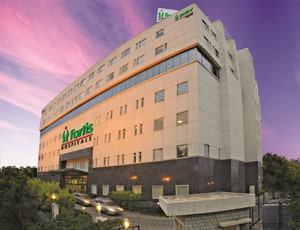
Types of Prostate Cancer Treatment in Fortis Hospital and its associated cost
| Treatment Option | Approximate Cost Range (USD) | Approximate Cost Range (INR) |
|---|---|---|
| Prostate Cancer Treatment (Overall) | 5075 - 10168 | 415642 - 835421 |
| Surgery | 3052 - 6068 | 249422 - 498449 |
| Radiation Therapy | 1518 - 4075 | 125244 - 332113 |
| Brachytherapy | 3049 - 6075 | 250166 - 497568 |
| Hormone Therapy | 509 - 1516 | 41428 - 124566 |
| Chemotherapy | 810 - 2540 | 66419 - 207653 |
| Immunotherapy | 3039 - 5603 | 248765 - 459614 |
| Targeted Therapy | 4068 - 7078 | 331686 - 585283 |
| Palliative Care | 507 - 1519 | 41719 - 124330 |
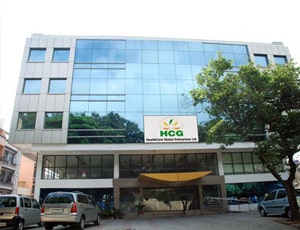
Types of Prostate Cancer Treatment in HCG Kalinga Rao Road and its associated cost
| Treatment Option | Approximate Cost Range (USD) | Approximate Cost Range (INR) |
|---|---|---|
| Prostate Cancer Treatment (Overall) | 5058 - 10151 | 416840 - 829322 |
| Surgery | 3037 - 6073 | 249740 - 498937 |
| Radiation Therapy | 1524 - 4059 | 124612 - 332828 |
| Brachytherapy | 3054 - 6083 | 250907 - 500647 |
| Hormone Therapy | 507 - 1526 | 41602 - 124587 |
| Chemotherapy | 812 - 2543 | 66332 - 207132 |
| Immunotherapy | 3035 - 5608 | 249343 - 457014 |
| Targeted Therapy | 4067 - 7125 | 333164 - 585391 |
| Palliative Care | 510 - 1526 | 41662 - 124297 |


Types of Prostate Cancer Treatment in Sarvodaya Hospital and Research Centre and its associated cost
| Treatment Option | Approximate Cost Range (USD) | Approximate Cost Range (INR) |
|---|---|---|
| Prostate Cancer Treatment (Overall) | 5067 - 10177 | 416250 - 829123 |
| Surgery | 3040 - 6117 | 250333 - 499141 |
| Radiation Therapy | 1527 - 4041 | 124741 - 334483 |
| Brachytherapy | 3045 - 6085 | 249645 - 500323 |
| Hormone Therapy | 506 - 1518 | 41608 - 124948 |
| Chemotherapy | 812 - 2532 | 66542 - 208133 |
| Immunotherapy | 3044 - 5600 | 249997 - 456713 |
| Targeted Therapy | 4079 - 7126 | 331944 - 583743 |
| Palliative Care | 509 - 1526 | 41750 - 124691 |
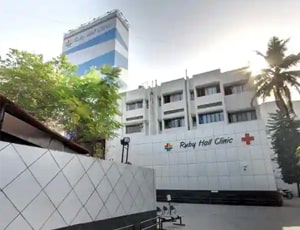
Types of Prostate Cancer Treatment in Ruby Hall Clinic and its associated cost
| Treatment Option | Approximate Cost Range (USD) | Approximate Cost Range (INR) |
|---|---|---|
| Prostate Cancer Treatment (Overall) | 4681 - 9344 | 383505 - 759257 |
| Surgery | 2773 - 5610 | 228977 - 458240 |
| Radiation Therapy | 1405 - 3703 | 114647 - 302656 |
| Brachytherapy | 2771 - 5581 | 231147 - 459597 |
| Hormone Therapy | 467 - 1417 | 37884 - 114067 |
| Chemotherapy | 753 - 2327 | 61970 - 189803 |
| Immunotherapy | 2833 - 5148 | 227533 - 419551 |
| Targeted Therapy | 3722 - 6642 | 307750 - 528721 |
| Palliative Care | 464 - 1424 | 38587 - 115041 |
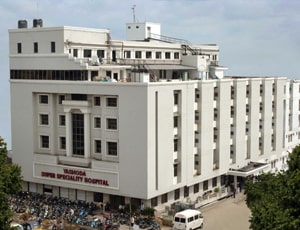
Types of Prostate Cancer Treatment in Yashoda Hospital, Malakpet and its associated cost
| Treatment Option | Approximate Cost Range (USD) | Approximate Cost Range (INR) |
|---|---|---|
| Prostate Cancer Treatment (Overall) | 5071 - 10187 | 414772 - 829355 |
| Surgery | 3037 - 6082 | 250136 - 499050 |
| Radiation Therapy | 1524 - 4041 | 125090 - 333432 |
| Brachytherapy | 3047 - 6081 | 250850 - 500452 |
| Hormone Therapy | 510 - 1520 | 41662 - 124278 |
| Chemotherapy | 808 - 2533 | 66534 - 207916 |
| Immunotherapy | 3035 - 5583 | 249702 - 457910 |
| Targeted Therapy | 4060 - 7121 | 331946 - 582211 |
| Palliative Care | 505 - 1516 | 41558 - 124779 |
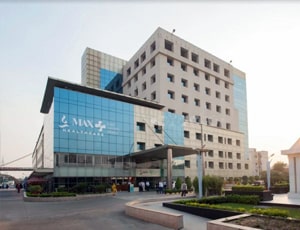
Max Super Specialty Hospital, Vaishali located in Ghaziabad, India is accredited by NABH, NABL. Also listed below are some of the most prominent infrastructural details:

Types of Prostate Cancer Treatment in MGM Healthcare and its associated cost
| Treatment Option | Approximate Cost Range (USD) | Approximate Cost Range (INR) |
|---|---|---|
| Prostate Cancer Treatment (Overall) | 5074 - 10178 | 418028 - 832920 |
| Surgery | 3058 - 6064 | 249108 - 499243 |
| Radiation Therapy | 1525 - 4043 | 125105 - 332460 |
| Brachytherapy | 3035 - 6065 | 248569 - 499774 |
| Hormone Therapy | 506 - 1520 | 41572 - 124380 |
| Chemotherapy | 812 - 2539 | 66391 - 207308 |
| Immunotherapy | 3042 - 5607 | 250516 - 456315 |
| Targeted Therapy | 4063 - 7088 | 334254 - 582158 |
| Palliative Care | 509 - 1525 | 41781 - 125215 |
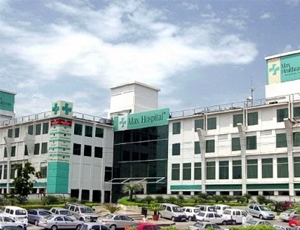
Max Hospital (Gurgaon branch), one of the top medical facilities in India, was established in 2007. Max Gurgaon Hospital is the first multi, super specialty tertiary care in the Location. Out of many other awards, the hospital also possesses the Express Healthcare Awards for Excellence in Healthcare. It is also certified to ISO 9001:2000 standards. The Institute of Minimal Access, Metabolic & Bariatric Surgery at Max Gurgaon has been designated as a Center of Excellence for providing cutting-edge Clinical Services and Surgical Training Programs for Abdominal Wall Hernia Surgery.
Over 5 lakh patients have been treated at the 92-bed Max Hospital Gurugram, which holds expertise in 35 specialized fields such as Cardiac Sciences, Minimal Access, Laparoscopic Surgery, Neurosciences, Urology, Orthopaedics, Aesthetics, Reconstructive Surgery, and Nephrology. The laboratories at Max Healthcare hospitals are accredited by NABH and NABL. It also provides hemodialysis for patients who have end-stage kidney disease and requires renal replacement therapy. Team of doctors and nurses at the hospital provides integrated medical care in a multi-disciplinary setting. As a result, it has received multiple awards and accreditations.
International patients have been treated impeccably here as all the nursing staff, shift doctors, and treating doctors are quite courteous and supportive towards the patients. There is no doubt that being in the hospital can make you feel at home.
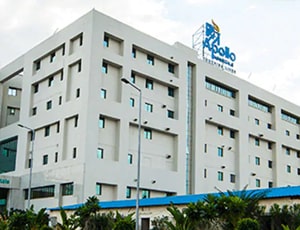
Types of Prostate Cancer Treatment in Apollo Hospital and its associated cost
| Treatment Option | Approximate Cost Range (USD) | Approximate Cost Range (INR) |
|---|---|---|
| Prostate Cancer Treatment (Overall) | 5740 - 11417 | 458226 - 905393 |
| Surgery | 3310 - 6722 | 272643 - 551831 |
| Radiation Therapy | 1692 - 4546 | 140495 - 363592 |
| Brachytherapy | 3441 - 6668 | 278556 - 557824 |
| Hormone Therapy | 550 - 1702 | 45486 - 138910 |
| Chemotherapy | 901 - 2847 | 73608 - 235702 |
| Immunotherapy | 3346 - 6167 | 279690 - 497957 |
| Targeted Therapy | 4513 - 7975 | 361378 - 649234 |
| Palliative Care | 565 - 1667 | 46204 - 136218 |
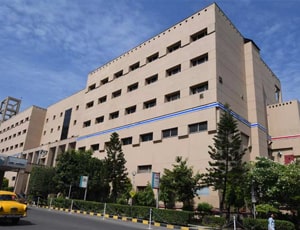
Types of Prostate Cancer Treatment in Apollo Multispecialty Hospitals and its associated cost
| Treatment Option | Approximate Cost Range (USD) | Approximate Cost Range (INR) |
|---|---|---|
| Prostate Cancer Treatment (Overall) | 5655 - 11440 | 465808 - 918990 |
| Surgery | 3443 - 6895 | 281615 - 562815 |
| Radiation Therapy | 1705 - 4559 | 137542 - 373109 |
| Brachytherapy | 3427 - 6699 | 277581 - 550341 |
| Hormone Therapy | 552 - 1696 | 46775 - 136351 |
| Chemotherapy | 899 - 2835 | 72660 - 229812 |
| Immunotherapy | 3352 - 6257 | 275802 - 511471 |
| Targeted Therapy | 4505 - 7727 | 373031 - 650910 |
| Palliative Care | 563 - 1693 | 45699 - 138638 |
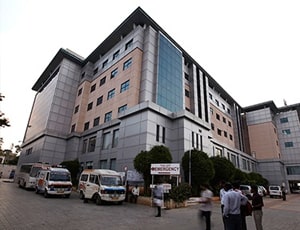
Types of Prostate Cancer Treatment in BGS Gleneagles Global Hospitals and its associated cost
| Treatment Option | Approximate Cost Range (USD) | Approximate Cost Range (INR) |
|---|---|---|
| Prostate Cancer Treatment (Overall) | 5597 - 11233 | 458925 - 919713 |
| Surgery | 3383 - 6847 | 273411 - 554777 |
| Radiation Therapy | 1671 - 4548 | 140228 - 362083 |
| Brachytherapy | 3416 - 6698 | 271027 - 550886 |
| Hormone Therapy | 565 - 1723 | 45767 - 140672 |
| Chemotherapy | 909 - 2819 | 72987 - 228038 |
| Immunotherapy | 3442 - 6256 | 276573 - 503747 |
| Targeted Therapy | 4425 - 7860 | 362224 - 651382 |
| Palliative Care | 563 - 1662 | 45952 - 139652 |
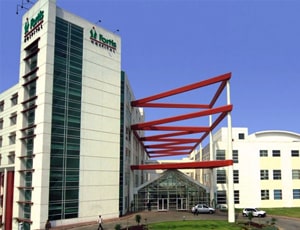
Types of Prostate Cancer Treatment in Fortis Hospital and its associated cost
| Treatment Option | Approximate Cost Range (USD) | Approximate Cost Range (INR) |
|---|---|---|
| Prostate Cancer Treatment (Overall) | 5072 - 10158 | 415761 - 832856 |
| Surgery | 3047 - 6084 | 248675 - 498574 |
| Radiation Therapy | 1522 - 4076 | 124405 - 333400 |
| Brachytherapy | 3060 - 6063 | 249678 - 500742 |
| Hormone Therapy | 506 - 1529 | 41536 - 125158 |
| Chemotherapy | 815 - 2529 | 66898 - 208896 |
| Immunotherapy | 3049 - 5583 | 249717 - 458810 |
| Targeted Therapy | 4040 - 7129 | 332410 - 581717 |
| Palliative Care | 506 - 1528 | 41522 - 124461 |
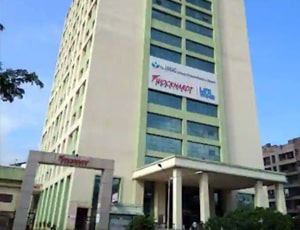
Types of Prostate Cancer Treatment in Wockhardt Hospital, Umrao and its associated cost
| Treatment Option | Approximate Cost Range (USD) | Approximate Cost Range (INR) |
|---|---|---|
| Prostate Cancer Treatment (Overall) | 5095 - 10149 | 414753 - 836134 |
| Surgery | 3055 - 6089 | 249965 - 499767 |
| Radiation Therapy | 1522 - 4051 | 124999 - 333593 |
| Brachytherapy | 3051 - 6099 | 249088 - 500064 |
| Hormone Therapy | 507 - 1521 | 41673 - 124728 |
| Chemotherapy | 815 - 2543 | 66263 - 208352 |
| Immunotherapy | 3043 - 5608 | 250647 - 458869 |
| Targeted Therapy | 4072 - 7121 | 331453 - 584958 |
| Palliative Care | 510 - 1517 | 41609 - 124260 |

Types of Prostate Cancer Treatment in Indraprastha Apollo Hospital and its associated cost
| Treatment Option | Approximate Cost Range (USD) | Approximate Cost Range (INR) |
|---|---|---|
| Prostate Cancer Treatment (Overall) | 5737 - 11421 | 458804 - 934221 |
| Surgery | 3339 - 6681 | 270771 - 560271 |
| Radiation Therapy | 1698 - 4597 | 137909 - 365150 |
| Brachytherapy | 3320 - 6624 | 277394 - 562520 |
| Hormone Therapy | 565 - 1691 | 45870 - 137647 |
| Chemotherapy | 886 - 2828 | 72272 - 231427 |
| Immunotherapy | 3440 - 6133 | 281322 - 516000 |
| Targeted Therapy | 4451 - 7701 | 370819 - 642219 |
| Palliative Care | 573 - 1656 | 46267 - 141285 |
The prostate is a gland in the male reproductive system, which makes fluid that forms an essential part of the semen. Prostate cancer starts when cells of the prostate glands begin to grow abnormally
Prostate cancer is one of the leading cancers in men above the age of 60. In most of the cases, it is slow growing and may even go undetected and do not cause any problem. However, in some cases, it could be aggressive and cancer cells can spread to other parts of the body (metastatic prostate cancer)
Prostate cancer is a very slow growing disease and starts with tiny alterations in the shape and size of the prostate gland cells. The prostate cancer risk increases with age and it is rarely observed before the age of 40. That is the main reason why many men die of old age, without ever knowing that they had prostate cancer.
There is no direct prostate cancer causes. However, there are some factors that can increase the risk of prostate cancer, including the following:
Usually, prostate cancer means the cancer of prostate gland cells called prostatic intraepithelial neoplasia (PIN). Almost all the prostate cancers are adenocarcinomas, but there are some other types of prostate cancer as well, including the following:
Based on how abnormal the patterns of cancer cells look, prostate cancers are classified as:
There are no warning signs of prostate cancer. The symptoms of metastatic prostate cancer usually appear first in the region that the cancer cells have invaded.
After cancer causes the prostate gland to swell, the following signs of prostate cancer may be experienced:
In prostate cancer stages, the following symptoms may also be there:
Treatment for prostate cancer can be divided into early stage and advanced stage. Your doctor will choose the best suitable treatment for you, depending on the stage and classification of prostate cancer, your age, and overall health status. Although, your feelings, expected lifespan, and your opinion will play a major role in choosing the right kind of treatment.
The most common treatment options for prostate cancer include the following:
Watchful waiting or active surveillance
No immediate treatment is carried out, but the patient is followed up at regular intervals to see the progression of the disease. This method is used in elderly patients with short life expectancy and in case of an early disease.
The main type of prostate surgery is called radical prostatectomy. In this, cancerous tissues are removed by a surgical operation. A long cut in the abdomen is needed in this surgery, depending on the extent and stage of cancer.
However, a keyhole surgery for prostate cancer using a laparoscope or robot is also available. These treatments have good success rates but may result in certain long-term side effects such as sexual dysfunction, narrowing of the urethra, and urinary incontinence.
High-intensity beams are used in this treatment to destroy the cancer cells in the prostate. Radiotherapy can be administered via needles implanted into the prostate, under ultrasound guidance or as an external beam. Radiotherapy can be used after surgery if the resection of cancer tissue has not been completed.
There are two types of radiotherapy for prostate cancer:
In this, the radiation beams are shaped so that the region where they overlap is as close to the same shape as the organ that requires treatment. It minimizes healthy tissue exposure to radiation.
In this, the beams with variable intensity are used. It is an advanced form of conformal radiotherapy. It is usually delivered with the help of a computer-controlled linear accelerator.
Hormone therapy involves the use of medications that suppress testosterone levels. They are used as primary treatment and in advanced cases or Stage 4 prostate cancer.
Chemotherapy is a kind of advance drug treatment in which strong medications are used to kill the cancer cells and prevent it from spreading. It is used when the prostate cancer is not controlled by hormonal treatment. Chemotherapy is selected only for treatment of Stage 4 prostate cancer and when the patient can cope with it.
This treatment uses extremely cold temperatures to freeze and destroy cancer tissues in the prostate. Cryotherapy is the best option for treating recurrent prostate cancer, especially if initial radiation therapy did not kill enough cancer cells. The surgeon inserts an ultra-thin metal probe or needle into the prostate gland, from which a freezing liquid, such as liquid nitrogen or more commonly, argon gas, is infused into the prostate gland.
Some treatments such as radiofrequency and high intensity focused ultrasound (HIFU) are used to treat early prostate cancer or when the patient is not fit for a major surgery.
Ask your healthcare adviser for the best multiple options and choose the one that meets your expectations
Prostate Cancer Treatment cost in India starts from about USD$ 6500. There are many NABH, JCI certified hospitals in India that offer Prostate Cancer Treatment.
Different hospitals have different pricing policy when it comes to the cost of Prostate Cancer Treatment in India. Some of the best hospitals for Prostate Cancer Treatment offer a comprehensive package that covers the end-to-end expenses related to investigations and treatment of the patient. The comprehensive Prostate Cancer Treatment package cost includes the cost of investigations, surgery, medicines and consumables. Post-surgical complications, new findings and delayed recovery may have an impact on the total Prostate Cancer Treatment cost in India.
There are several best hospitals for Prostate Cancer Treatment in India. Some of the most renowned hospitals for Prostate Cancer Treatment in India include the following:
After Prostate Cancer Treatment in India, the patient is supposed to stay in guest house for another 21 days. This duration of stay is recommended to complete all the necessary follow-ups and control tests to ensure that the surgery was successful.
One of the topmost destinations for Prostate Cancer Treatment is India. It has a variety of accredited hospital, affordable cost of treatment and some of the best medical fraternity. Some of the other destinations that are popular for Prostate Cancer Treatment include the following:
There are certain additional cost that the patient has to pay apart from the Prostate Cancer Treatment cost. These include the cost of accommodation and meals outside hospital. The per day cost in this case may range around USD$ 25.
Some of the popular cities in India that offer Prostate Cancer Treatment include the following:
The patient has to spend about 4 days in the hospital after Prostate Cancer Treatment for proper recovery and to get clearance for discharge. The patient is subjected to several biochemistry and radiological scans to see that everything is okay and the recovery is on track. After making sure that patient is clinically stable, discharge is planned.
Prostate Cancer Treatment hospitals in India have an overall rating of about 4.6. This rating is calculated on the basis of different parameters such as attitude of the nurses, cleanliness, quality of food and the pricing policy.
There are more than 58 hospitals that offer Prostate Cancer Treatment in India. These hospitals are approved to perform the surgery and have proper infrastructure to handle Prostate Cancer Treatment patients.
Prostate cancer treatment in India is widely available across different hospitals across the country. India, as a country, is globally renowned for the quality of medical treatment and skilled doctors and surgeons, who provide their services at an extremely reasonable cost. Many patients from abroad fly to India every year for cancer treatment. India has some of the best medical, surgical, and radiation oncologists, a majority of which are trained and educated from some of the best medical institutes in the world. There are many reasons why one should choose to undergo prostate cancer treatment in India. Some of these include the following:
Advanced prostate cancer treatment in India is available across many oncology centers and hospitals. A majority of these hospitals are located in the Tier-1 metropolitan cities such as Delhi, Chennai, Bangalore, Mumbai, and Hyderabad. These are some of the cities that are most frequently visited by patients from abroad for medical treatment. Some of the reasons behind the same include the following:
Prostate cancer treatment cost in India varies from one patient to the other. The overall expenses that a patient may have to bear depending on the stage, grade, extent, and type of prostate cancer that he may be suffering from. When it comes to cancer, the treatment is highly individualistic. The team of medical, surgical, and radiation oncologists decides the personalized treatment plan on the basis of the individual cancer characteristics and overall health. Therefore, the average cost of prostate cancer treatment may vary from one patient to the other. For example, the cost of robotic surgery for prostate cancer in India may start at approximately $5000. On the other hand, the cost of radiation therapy for prostate cancer in India may cost around $3000. The average cost of prostate cancer treatment in India, therefore, varies between $5000 and $8000, depending on the mode and type of treatment administered.
Some of the best doctors for prostate cancer treatment in India are associated with the hospitals located in the Tier-1 cities. The top hospitals for prostate cancer treatment in India are accredited by the Joint Commission International (JCI), which is the global standard for healthcare quality. Following are some of the top hospitals for prostate cancer treatment in India:
Artemis Hospital located in New Delhi
Since its inception in the year 2007, the Artemis Hospital has treated more than a thousand prostate cancer patients successfully. With an amalgamation of highly-experienced doctors and exquisite technology, the healthcare center keeps increasing the success rate over the disease gradually.
Indraprastha Apollo Hospital located in Delhi
One of the oldest extensions of Apollo Hospital, the IAH has been pioneers in many cases, and prostate surgery is one of them. It employs several techniques, such as invasive and non-invasive surgical procedures, radiation therapy, immunotherapy, and chemotherapy, for treating its patients.
Fortis Malar Hospital located in the city of Chennai
The multi-specialty tertiary care center, FMH, ranks as one of the best hospitals in India for prostate cancer surgery. Mostly, the doctors of the hospital opt for surgical procedures. However, if your disease has advanced a little bit, then they will, first, reduce the size of the tumor and then proceed with the surgical procedure.
Fortis Anandapur Hospital in Kolkata
Fortis Anandapur Hospital is one of the newest of the lot but still has surpassed many of its rivals due to its state-of-the-art tech usage and efficiency of the doctors. As per reports, the hospital currently uses surgery and chemotherapy as the means of treating the disease.
Fortis Hospital, Bannerghatta Road
We are going to end this list with yet another top-notch hospital, the FAH. Like the others, it, too, has been offering its services in this aspect for many years. It has a remarkably high success rate in treating prostate cancer and has cured hundreds of help-seekers until now. The doctors of the hospital mainly use a combination of radiotherapy, chemotherapy, and surgery to treat this potentially life-threatening health condition.
Research has shown that the prostate cancer survival rate in India is approximately 10 to 15 years. However, it varies from one patient to the other, depending on which stage the cancer is diagnosed. A study conducted in the past in Mumbai has also shown that patients who undergo a surgery for prostate cancer survive better (91%) than patients who do not. Even though diagnosis and treatment play an important role in prostate cancer survival rate, it also depends on how aware an individual is about the health of the prostate. Early diagnosis means early treatment intervention and better chances of survival.
Prostate-specific antigen is a protein produced by the prostate gland. A PSA test is often used to screen for prostate cancer. A high level of PSA could indicate prostate cancer. However, there could be many other reasons for it such as an inflamed or enlarged prostate. Thus, if you have received a high PSA score then further investigation is required to confirm the diagnosis of prostate cancer.
If screening tests for prostate cancer such as a digital rectal exam or a prostate-specific antigen test give abnormal results then the following tests will be conducted to determine if you have prostate cancer:
A transrectal biopsy can take about 10 minutes and you will have to go to your doctor’s office to get the test done. After the prostate biopsy, the doctor usually recommends that patients only participate in light activities for about 24-48 hours. Usually, recovering from a biopsy will depend on the age and health of the patient.
Benign prostatic hyperplasia is also known as prostate gland enlargement. This condition is common in older men and can lead to symptoms such as the blockage of urine flow out of the bladder and kidney, urinary tract, and bladder problems. There are many treatments available for benign prostatic hyperplasia such as surgery. The doctor will consider various factors such as your age, your symptoms, your personal preferences, and the size of your prostate.
There are some steps you can take to prevent prostate cancer. These include:
Hormone therapy is an effective treatment for prostate cancer. The prostate cancer cells require the hormone testosterone for their growth. Hormone therapy prevents the production of testosterone or stops it from reaching the prostate cancer cells. Thus, causing cancer cells to grow slowly or die. This therapy is also known as androgen deprivation therapy. It can be used with other treatments like radiation therapy to be more effective.
Conventionally, external beam radiation therapy for prostate cancer is usually delivered 5 days a week for many weeks. However, clinical trials have shown that giving 20 treatments for about 4 weeks can also be as effective as conventional radiation given for about 8-9 weeks. However, the dosage given in this would be higher than the dosage given conventionally. In an ultrahypofractionated therapy, the radiation dosage is further increased and can be even completed in only 5 treatments.
A Gleason score is traditionally used to describe the grade of prostate cancer. A higher Gleason score means that prostate cancer has a worse prognosis and is more aggressive. Usually, the total Gleason score is determined after looking at prostate cancer cells under the microscope. The first part of the score is based on the most prevalent or dominant cell morphology(given a score of 1-5). The second part of the score is based on the non-dominant cell pattern that has the highest grade(given a score of 1-5). These two scores are then combined to give a total score for prostate cancer.
The treatment is said to be effective when your prostate cancer cannot be detected on any test. This is also known as complete remission or complete response.However, this doesn’t always mean that your cancer has been cured as it is possible that you may still have cancer but it is too small to be detected by tests. If your tumor has shrunk by atleast 50% then it is called as partial remission or partial response. The doctor will conduct follow-up tests after your treatment to ensure that the treatment was successful. These sessions can last for several years or months after your treatment has finished.